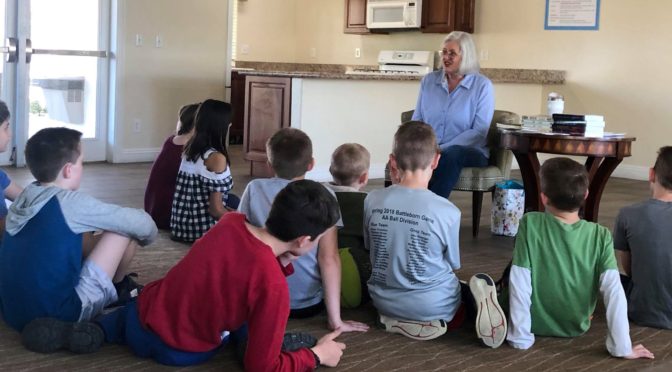Yesterday I was privileged to share my author journey with a group of home-schooled children who wanted to know how I started writing. We had a good time talking about what books they would write. Some of those will be authors to watch for in the near future.
I share some of our discussion with you today.
I am a reader. I have been all my life. I inhale books, often several at a time. In my early days as a reader, I learned to recognize a good book, although not how to write one.
I don’t remember having a drive to be an author. I wanted to write, but other things were more important then. I loved writing poetry. I tried to write a short story in high school. I failed. Later in college, I took a fiction class from an author and wrote the first chapter of a book. Between then and 2013, I wrote several first chapters, but never managed to get the second chapter written.
In all my years as a reader, I somehow missed the important elements of a good story. It wasn’t until I co-taught a kindergarten class in a private school that had every child write a book that I figured out why I couldn’t finish a story. I forgot the basic elements of story!
What are the elements? Character, setting, problem, and solution.
It seems easy. Now I know. Before I didn’t understand how to do it.
Then I received a challenge to participate in National Novel Writing Month in November of 2013. The challenge is to write 50,000 words in the month. To do that, you have to write like mad without editing.
I took a story I’d tried to put down before, changed the point of view, and remembered the basic elements. I’d think, “What problems would she face?” Then I’d try to come up with a solution to the problem.
I may write differently from many other authors. I don’t outline my books. I’ve never been able to do that even for big research projects in school. Instead, I write into the dark. I decide who my characters will be, where and when they are living, then think of problems they may face. As they try to solve the problems, the characters have other challenges to solve, until they finally solve the major problems of the story.
I write to discover what happened to the people I learn to care about as I write about them. I started Lost Children of the Prophet because children went missing and I needed to know where they went and why. I know now what my end story will be in that series, though I haven’t determined how many more books it will take me to get there.
After that? I have no idea. I’m sure some other character will want me to learn about her and want me to tell her story.
I write books about women because they have been forgotten through time and their stories need to be shared. If you have a suggestion of women whose story has been forgotten, I’d love to hear it.

